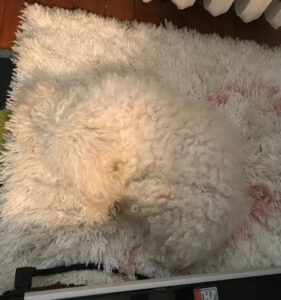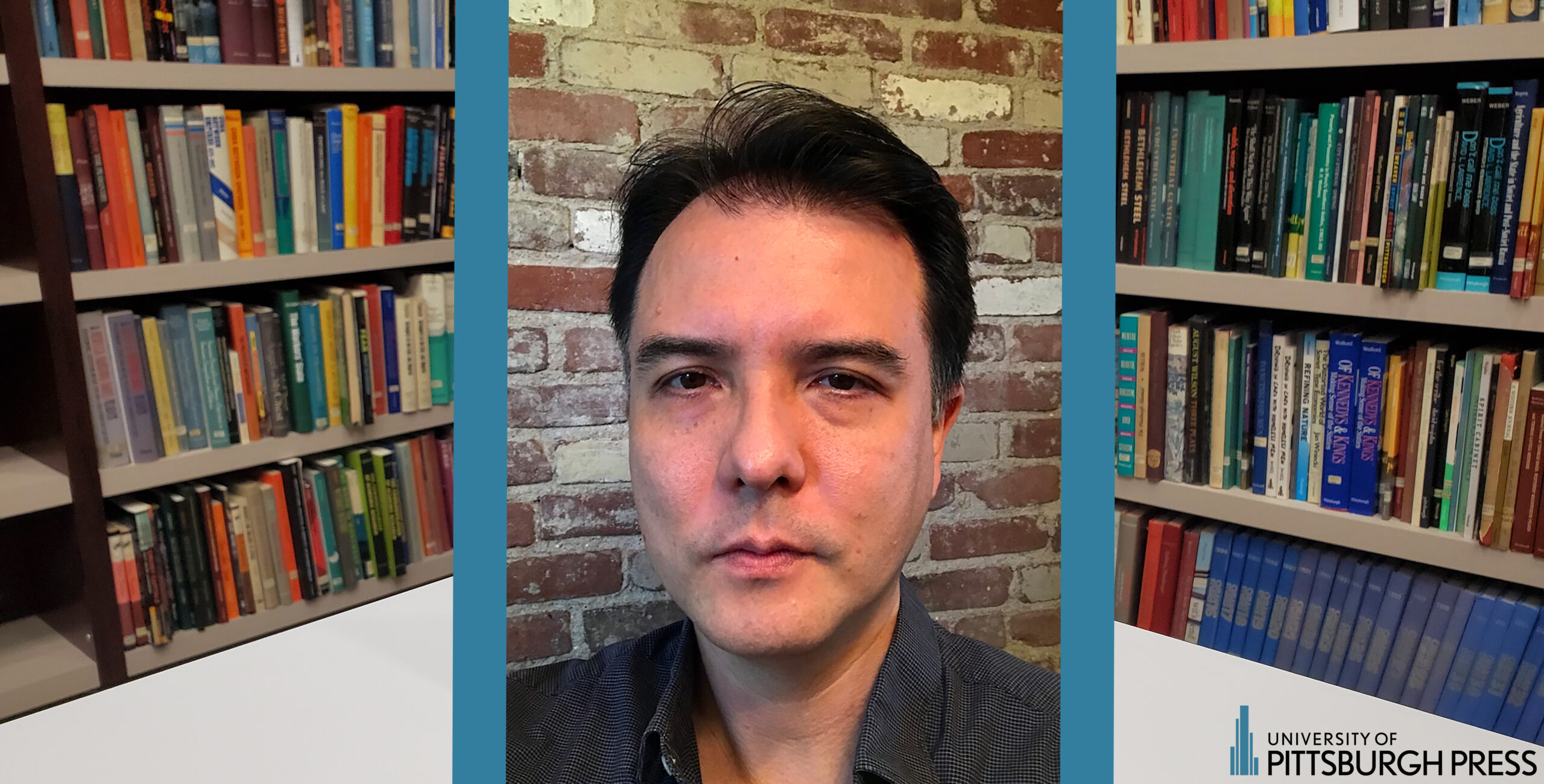University Press Week: #NextUP at UPP
University Press Week: #NextUP at UPP
Today for University Press Week we are featuring an interview with Will Masami Hammell, who recently joined the Press as Senior Acquisitions Editor to build new lists in Asian Studies and Africana Studies. Below he discusses his personal and professional background as well as his editorial process.
Q; What drew you to the University of Pittsburgh Press?
A: I’ve admired the gumption of the Press since my earliest days as an editor. When I was starting out in acquisitions at Temple University Press, I lost my first competitive project to the Pitt Latin American Series, and I remember my less-than-mature reaction: “Humph! Why does Pitt even have a series in Latin American studies, anyway?” But as I gained experience and perspective, I came to appreciate the Press, its unshakable sense of identity, its unwavering commitment to scholarship, and its ironclad connection to its community. It’s always appealing to work for a press that knows itself and its readership.
Q: Tell us about your background
A; I was born in Tokyo and raised in a bilingual/bicultural household that moved around a fair bit between Japan and the United States. I attended schools in Tokyo and Honolulu that promoted multicultural education and nurtured my international perspective on the richness and diversity of human experience. I studied Chinese and Japanese languages and literatures as an undergraduate in the cosmopolitan melting pot of Washington, DC. Like many of my editorial peers, I was drawn to academia but eventually withdrew from my PhD program and landed in publishing, first in Philadelphia, then in Boston, where I continue to reside. My career has included stints at Lippincott Williams & Wilkins, Temple University Press, the Harvard University Asia Center, and Cambridge University Press. Before joining Pitt, I held a senior editorial position in faculty affairs at an academic medical center in Boston.
Q: Tell us about the fields you’ll be developing—what drew you to these fields and why are you excited about them?
A: I’m excited to develop lists in Asian and Africana studies for Pitt because both are competitive areas undergoing redefinition and reconfiguration, and I am confident that the Press can stake out some fertile scholarly territory.
My interest in Asian studies springs from my personal background, my educational history, and my professional experience, so I’m delighted to return to this familiar field with fresh insights and renewed enthusiasm. In addition to exploring areas already well represented on the Pitt list (e.g., history and philosophy of science, technology, and medicine; environmental studies; urban studies), I’m keen to pursue projects on Asian media and its cultural impacts; transnational flows of Asian labor, capital, and commodities; multidimensional linkages between Asia and the Americas; religion and spirituality in Asia and its diasporas—to name a few possibilities!
I was drawn to Africa by the sheer diversity of histories and cultures on the continent and in its diasporic communities. My introduction to African culture was largely informal, through the amazing food and music that I enjoyed in the Ethiopian and West African restaurants of DC, Philly, New York, Boston, and Tokyo. Those interests found their way into my work through the African ethnomusicology series that I initiated at Temple and the African studies list that I managed at Cambridge.
I’m eager to build lists at Pitt that bridge African studies, African American studies, and African diaspora studies, especially through projects featuring historical or ethnographic approaches to urban life, heritage & memory, geography & environment, and global health. I’m also bullish about the burgeoning field of Afro-Asian studies, which would allow for innovative cross-pollination between my areas of acquisition.
Q:What is your process for developing these new areas of acquisition?
A: One of my early mentors shared an apt description of acquisitions work: “Sifting… always sifting.” This has guided me throughout my career, especially as incredible volumes of information have become available through the internet and social media—not to mention the myriad lectures and conferences that have become accessible through virtual platforms during the pandemic.
When developing new lists, I make a point of browsing a wide range of materials to identify promising topics and potential contacts as well as to gather datapoints that might indicate nascent trends. So in addition to the usual browsing of conference programs, event schedules, faculty listings, seasonal catalogues, and Twitter feeds, I try to glean data from course syllabi, academic job listings, graduate student profiles, postdoctoral fellowship announcements, university mission statements, and the like, to spot patterns and tease out priorities.
Next to “sifting” in my acquisitions toolbox is “connecting”—with people, organizations, places. Since I live in Boston, I am taking advantage of the concentration of universities in the region to meet with local faculty on their own turf. I am attending the annual meetings of the African Studies Association (November 2022) and the Association for Asian Studies (March 2023) to refresh and expand my networks in these fields. And to me “connecting” means not only cultivating and maintaining personal and institutional connections, but also linking areas of scholarship that may have been separated or siloed in the past, with the aim of dismantling divisions and stimulating synergies in area studies.
Q:What excites you the most about working here and on these areas?
A: In many ways, this role represents a dream scenario for an editor: having considerable leeway in planning and executing acquisitions in new directions, but with the comfort and confidence of springboarding from a highly regarded list. Many of the traditional strengths of the Press are also growth areas in Asian and Africana studies, so there are ample “selling points” in recruiting prospective authors and raising awareness among stakeholders—in order words, there are many good answers to the question: “Why publish with Pitt?”

Q: Any anecdotes (funny, sad, or otherwise) to share about your work thus far?
A: My editorial intern / toy poodle Bonnie is also settling into her new role. She has many cat-like qualities (e.g., napping frequently, curling up in warm places, acting aloof and affectionate at the same time), so she was gratified (in typically understated fashion) to be welcomed as an honorary feline into the #catpics channel on our Press-wide Slack workspace.


COMMENTS